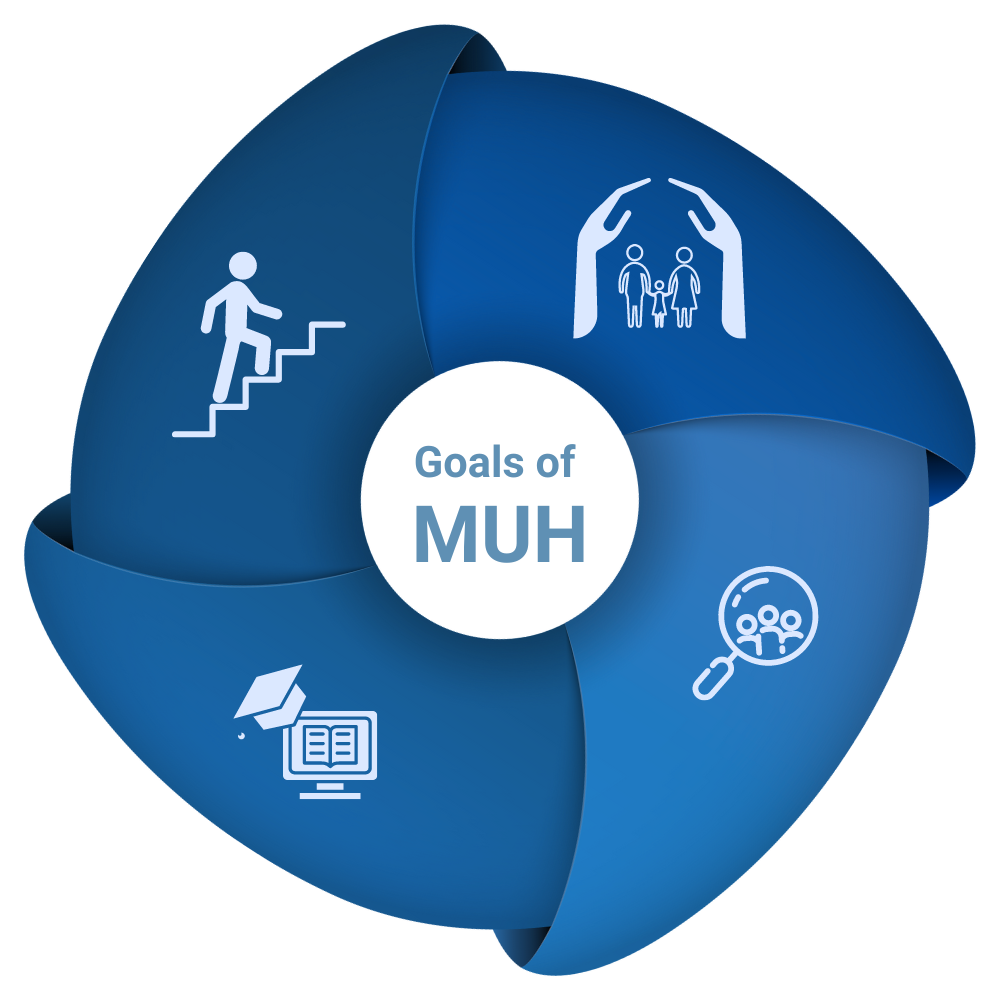Academy
Mobile University for Health
ABOUT MUH
MUH is an initiative of the Global Health Institute (GHI) at the American University of Beirut (AUB). It aims to equip women and men to serve as Community Health Workers (CHWs) in their respective countries, and to support upon graduation in access to healthcare, rebuilding thereby the healthcare system.
The MUH is comprised of two components: a Capacity Building component and a Community of Practice (CoP) component.
The Capacity Building component comprises four courses that are delivered in person or remotely by experienced faculty at GHI. The CoP is intended to support graduating CHWs in their work through technical and programmatic support by GHI staff.

To contribute to the career building of refugees and host communities in the health sector
To identify the health needs and priorities of displaced Syrians and host communities
To develop academically-based educational programs that fit the needs of refugees and host communities
To identify the gaps in health services, health training, and availability of health workforce
CAPACITY BUILDING
The Capacity Building component of MUH provides health education, through certificates that focus on priority health topics. Graduating CHWs become equipped to take an active role in the delivery of accurate health-related information and activities within their communities.
It is tailored for entry-level education for participants interested in becoming Community Health Workers (CHWs).
The Capacity Building is offered through interactive lectures that promote critical thinking and learning, empowering participants to learn how to effectively work within their communities. Currently, it includes four certificates: Women’s Health, Mental Health, Non-Communicable Diseases, and Infection Prevention and Control.
The Capacity Building component is composed of four main certificates:
COMMUNITY OF PRACTICE
The CoP component of MUH provides technical and programmatic support to CHWs empowering them to successfully bridge the gap between the formal healthcare systems and the community.
In the CoP component, CHWs will lead community-based health awareness and promotion events with the support of GHI staff and experts.


